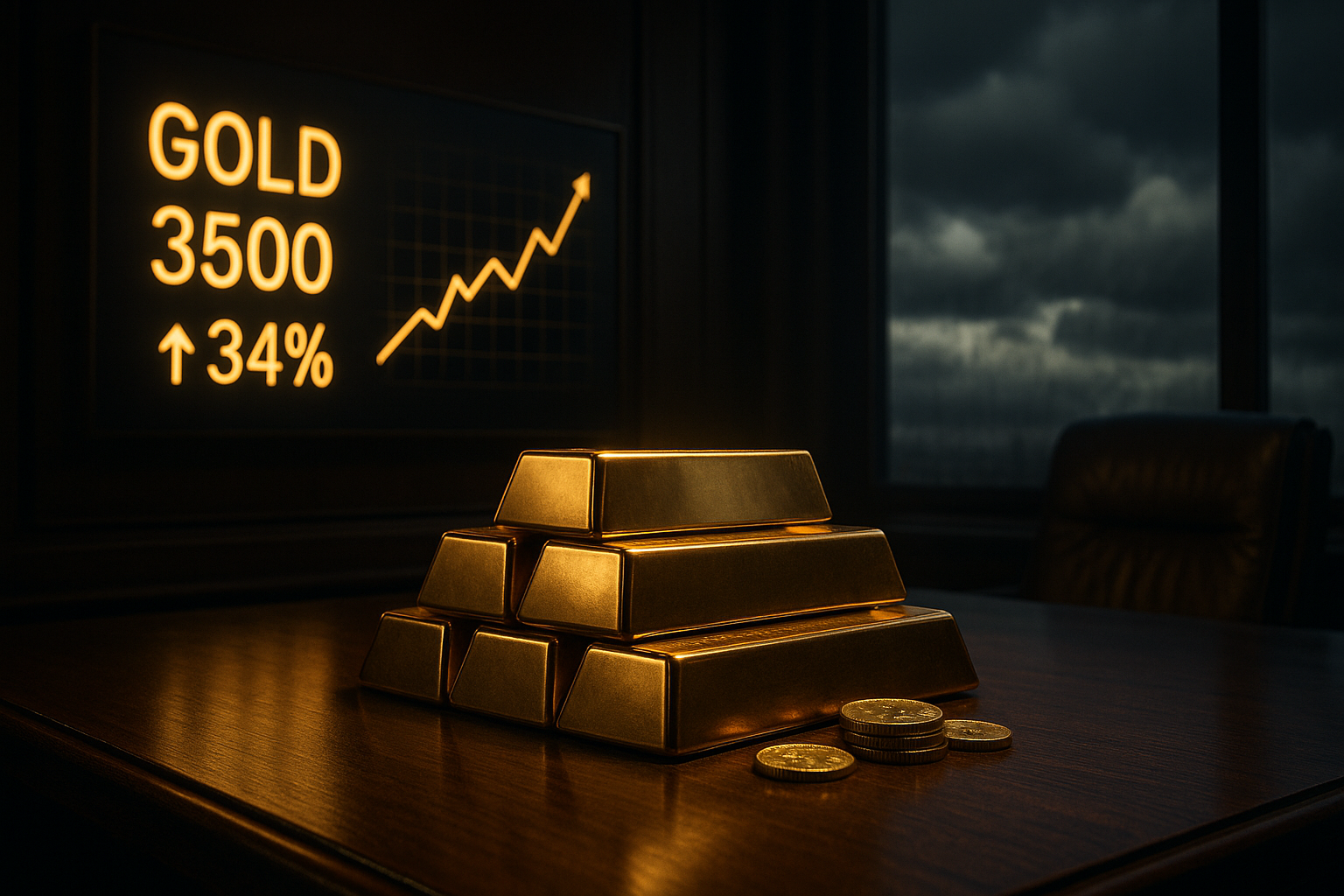Gold's having a hell of a moment right now. While most of us have been reasonably satisfied with the S&P's decent 9% climb this year, gold enthusiasts are practically insufferable these days, watching their precious metal soar a whopping 34%.
This performance gap? We haven't seen anything like it since 2008. And if you were investing back then—or just had a retirement account—you remember all too well what that meant. Nothing good.
I've been tracking commodity markets for nearly a decade, and there's something unnerving about gold's current trajectory. When gold pulls this far ahead of equities, it's typically not because everything's going swimmingly in the broader economy.
With prices rocketing past $3,500 and $GLD hitting all-time highs, the question practically asks itself: Is gold once again playing its historical role as the market's warning system?
Look, nobody wants to be that pessimist who keeps pointing at storm clouds during a picnic, but the parallels to previous periods of economic turmoil are hard to ignore.
Central banks are stockpiling gold at rates we haven't witnessed in decades. These aren't institutions known for making rash decisions—they typically move with all the spontaneity of a glacier. When they collectively decide to load up on something, it's worth paying attention.
The traditional relationship between gold and real interest rates has always been pretty straightforward—gold usually suffers when real rates climb, since it doesn't pay you anything to hold it. But despite the Fed's aggressive rate hikes? Gold's just shrugging them off.
That suggests one of two things: either investors don't believe these rates are sticking around, or they're worried about something else entirely. Neither scenario feels particularly comforting.
I spoke with several fund managers last week who described what one called a "growing sense of unease" about longer-term financial stability. Not panic, mind you—just a nagging concern that something fundamental might be shifting.
There's also the geopolitical dimension to consider.
Several major economies—China and Russia being the most obvious—have been systematically reducing their dependence on dollar-denominated assets. When global powers start rearranging the financial furniture this deliberately, it's usually not random redecorating.
But here's where today's situation gets more complicated than 2008. We're not seeing the obvious stress signals in credit markets. Banks aren't failing left and right. Employment numbers remain decent. Corporate earnings haven't collapsed.
So what gives?
Perhaps what we're witnessing isn't so much a warning about some imminent market crash but rather a hedge against a longer-term restructuring of the global financial system. The post-Bretton Woods monetary order has been showing cracks for years now. Gold's resurgence might simply reflect growing uncertainty about what comes next.
Or—and we should acknowledge this possibility—maybe it's just a really impressive bull market driven by momentum traders and good old-fashioned FOMO. Markets occasionally just... do things. Bizarre, unexplainable things.
I certainly wouldn't recommend converting your retirement savings to gold bars and burying them in your backyard. (Though if you do, please invite me to dinner sometime—you sound interesting.)
What I am suggesting is that when an asset with gold's historical significance outperforms stocks by this magnitude, it contains information worth decoding.
The last time I saw this kind of divergence, in 2007-2008, I dismissed it initially. Won't make that mistake twice.
The gold market is telling us something. Whether it's screaming about impending doom or just murmuring about a gradual realignment of global financial preferences remains unclear. But significant price movements in historically important assets rarely happen for no reason.
In the meantime, I'll keep watching credit spreads, volatility metrics, and other traditional warning signs. Gold may be glittering brightly, but it's just one piece in a complex puzzle.
A really shiny, suddenly expensive piece.
